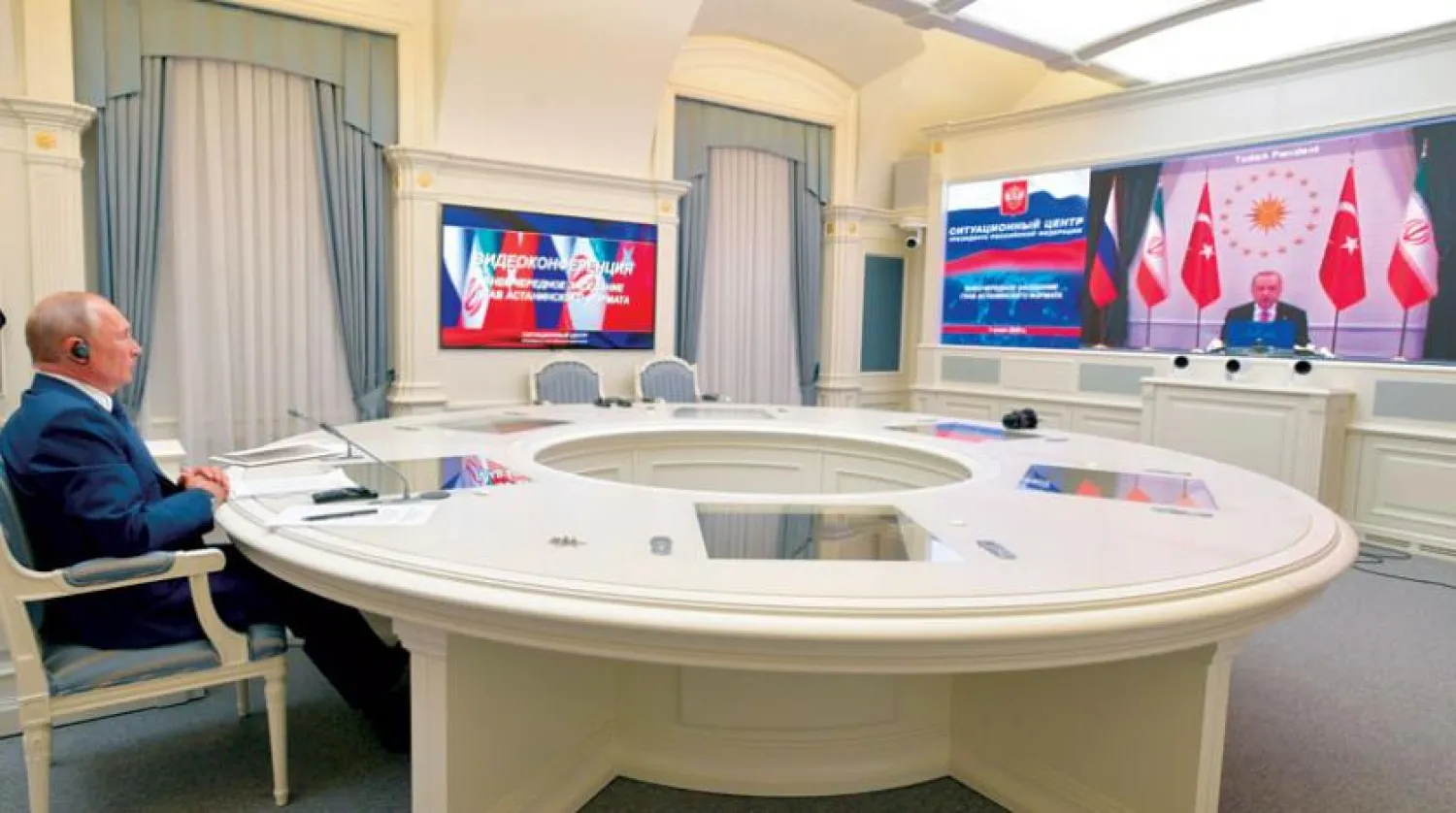Russia is sending mixed signals about its intentions in Syria over the last few months of the US Donald Trump administration. It sometimes appears to swiftly look for solutions while in other instances it appears that Moscow is looking to buy some time.
The last escalatory signal was when Russia informed the UN Security Council that it no longer wants but a single border entry point to allow for UN humanitarian relief to flow into the war-torn country’s northwest and for six months exclusively.
The cross-border aid delivery mechanism has been in place by a UNSC resolution since 2014. It does not require any authorization from Damascus.
At the end of last year, Russia pressed and reduced the number of points from 4 to 2 to push the UN to deal with the Syrian government. Also, a few weeks ago, it rejected an international demand to open the Al-Yarubia crossing point in northeastern Syria with Iraq.
Today, before the international resolution expires on July 10, Moscow wants to limit humanitarian aid to one border point with Turkey for 6 months, without paying attention to calls by UN Secretary-General Antonio Guterres or to the commitments it made in the tripartite statement of the “Astana Summit.”
This step could be a response to the Caesar Act, US legislation which sanctions the Syrian regime, and to transform Damascus into a gateway for international institutions.
On June 23, Russia withdrew from a voluntary UN-led arrangement to protect hospitals and humanitarian aid convoys from military targeting.
This came after an international report accused Damascus and its allies of bombing medical centers in northwestern Syria, despite having been informed in advance of the locations of the targeted centers.
Other escalatory messaging was debuted at the Astana Summit held online by the presidents of Russia, Turkey and Iran two days ago.
Turkey, at the Astana Summit, succeeded in getting the other two guarantors, Russia and Iran, to slash criticism of Hayat Tahrir al-Sham from the joint statement. The new statement was transformed into a platform to direct criticism at Washington’s allies in Syria and reject any separatist agendas or autonomous regions in northeastern Syria.
This criticism was largely directed at Kurds who are backed by Washington.
The statement reiterated objection to Washington's support for Israel’s decision to annex the Golan Heights. It also denounced Israeli raids in Syria, saying that they threaten its sovereignty and security and stability in the region.
Referring to the latest action taken by Washington and Brussels, the statement rejected unilateral sanctions.
On the other hand, Russia could be testing solutions in Syria.
Since the signing of an agreement between Russia and Turkey on March 5, there has been an obvious commitment to the truce in Idlib. Ankara was given time to come forth on its undertaking to handle “terrorists.”
Moscow pressured both Damascus and Tehran into backing off from an all-out war on Idlib.
It is worth noting that the Astana Summit’s recent statement made an honorable mention of how the Turkey-backed Hayat Tahrir al-Sham played an important role against the Guardians of the Religion extremists.
This coincides with repeated Russian efforts to prevent a military escalation in Daraa. The Russians also intervened to control an escalation in Sweida where demonstrations and arrests took place, at a time when there is talk about forming an army of opponents in southern Syria.
Militarily, Russia has not interfered in the Syrian raids that last week affected 4 Syrian governorates, including Sweida.
Showing more leniency, Russian officials expressed on multiple occasions their willingness to discuss with the US the future of Syria. This came after a media campaign was launched in Moscow against Damascus and its officials.
Western analysts believe that Russia is rushing to find a solution in Syria because of the worsening economic crisis there and the imposition of US sanctions. Other factors are also at play, such as the crisis in neighboring Lebanon and sanctions against Iran.
Can Moscow hold an understanding with Washington in the last months of the Trump administration, because it cannot wait a year and a half until the new US administration is established, or will it wait and discuss with Tehran ways to buy time in the difficult months ahead?
















